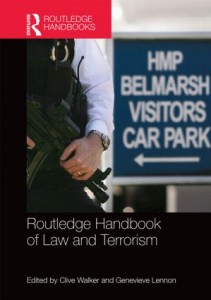By Prof Steven Greer, Professor of Human Rights (University of Bristol Law School).
 S Greer, ‘The myth of the “securitized Muslim community”: the social impact of post-9/11 counterterrorist law and policy in the west’ in G Lennon & C Walker (eds), Routledge Handbook of Law and Terrorism (London: Routledge, 2015), 400-15.
S Greer, ‘The myth of the “securitized Muslim community”: the social impact of post-9/11 counterterrorist law and policy in the west’ in G Lennon & C Walker (eds), Routledge Handbook of Law and Terrorism (London: Routledge, 2015), 400-15.
The academic literature broadly concerned with the ‘social impact’ of post-9/11 terrorism and counter-terrorism in the West is dominated by ‘the securitization thesis’ at least eight senses of which can be distinguished: 1. Muslims as a whole feel under suspicion from society merely because they are Muslim; 2. Muslims as a whole are under suspicion from society for the same reason; 3. Islam is under suspicion from society; 4. Muslims as a whole feel under suspicion from the state solely on account of being Muslim; 5. Muslims as a whole are under suspicion from the state merely because they are Muslim; 6. Islam is under suspicion from the state; 7. Muslims as a whole are subject to special security and criminal justice measures purely because they are Muslim; 8. Islam is subject to special security and criminal justice measures not applicable to other faiths or ideologies. There can be little doubt that the first four propositions are true at least to some extent. But these are not genuine instances of ‘securitization’ because this term can only credibly refer to objective, deliberate, state-managed processes, not reducible to the subjective experiences of those who may or may not have been affected by them, or to social processes over which the state may have little or no control. (more…)

